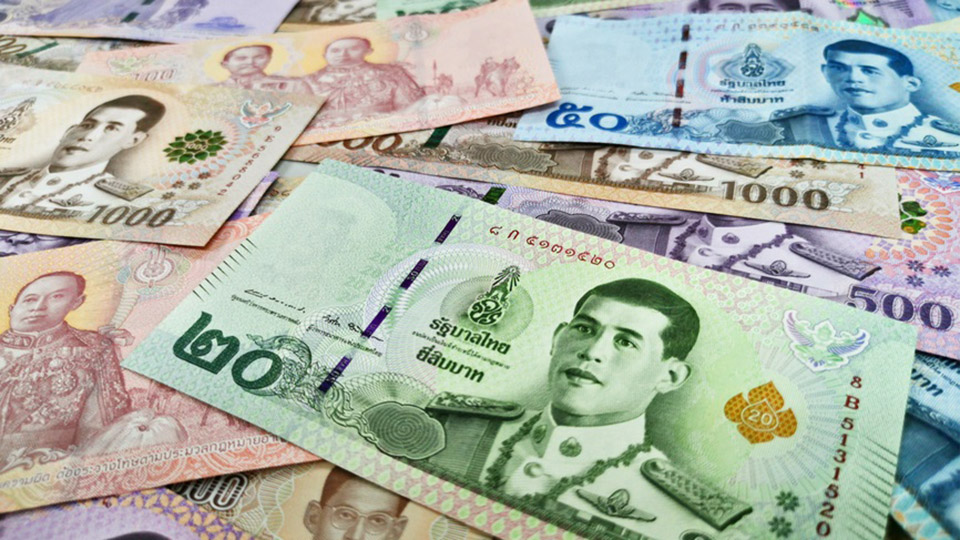
BANGKOK, Thailand – The Thai baht weakened this morning (Oct 4), trading around 33.11-33.13 baht per U.S. dollar at 9:30 AM, compared to yesterday’s closing rate of 33.10 baht. During the previous day, the baht reached its weakest level in over a week at 33.15 baht per dollar.
Kanjana Chokpaisansilp, Executive Director of Research at Kasikorn Research Center, stated that the baht’s depreciation aligns with the general weakness of other Asian currencies, driven by the strengthening U.S. dollar. This dollar appreciation follows the rise in U.S. bond yields, supported by a better-than-expected U.S. ISM services index, which rose to 54.9 in September, its highest level since February 2023.
However, the baht’s decline may be limited due to a rise in global gold prices, spurred by ongoing tensions in the Middle East, particularly between Israel and Iran. The initial forecasted range for the baht’s movement on the day is between 33.00 and 33.25 baht per dollar. Key factors to watch include foreign capital flows, global gold prices, other regional currencies, Federal Reserve speeches, and U.S. economic data such as September’s non-farm payrolls and unemployment rate.
On the global commodities front, the COMEX gold futures contract for December delivery closed yesterday (Oct 3) up $9.50, or 0.36%, at $2,679.20 per ounce. The Middle East tensions have boosted demand for gold as a safe-haven asset, while investors closely monitor today’s release of U.S. non-farm payroll data to assess future Federal Reserve interest rate policy.
Meanwhile, crude oil prices continued their upward trend for the third consecutive day. WTI crude for November delivery rose by $3.61, or 5.15%, to settle at $73.71 per barrel. Brent crude for December delivery climbed $3.72, or 5.03%, to close at $77.62 per barrel. The oil price rally is largely driven by concerns over supply disruptions due to the Middle East tensions. Reports indicate that U.S. President Joe Biden is in discussions with Israel about targeting Iran’s oil facilities. Iran, a major OPEC member, produces 3.2 million barrels per day, accounting for 3% of global oil output. Analysts warn that if the Strait of Hormuz is affected, oil prices could surge to $200 per barrel. (TNA)








